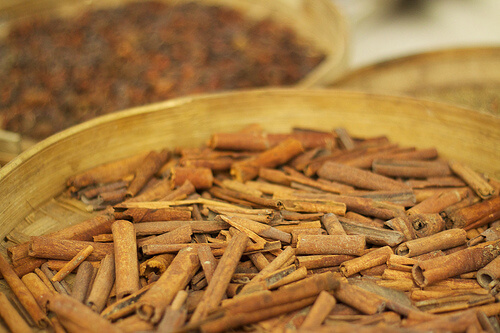Medicinal Uses of Cinnamon
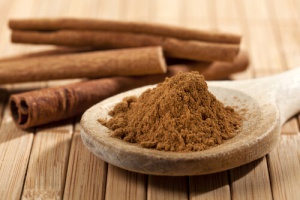
This article focuses on an aromatic plant whose use dates back thousands of years. The medicinal uses of cinnamon are known for centuries. The most well-known variety is “cassia cinnamon” that offers the most curative properties.
However, according to Ayurveda, it works to treat a large range of respiratory, digestive, and reproductive illnesses.
Therefore, cinnamon is great in chocolate and coffee and is really quite delicious. Learn much more about the medicinal uses of cinnamon below.
Read also: Birdseed and Cinnamon for Blood Pressure
Characteristics of Cinnamon
The tree that produces cinnamon is perennial and can measure up to 50 feet tall. It has a double bark and very aromatic branches. Its natural habitat is in Southern India or in Sri Lanka, but it is now also cultivated in other warm climates.
Moreover, Cinnamon comes from the inner bark layer of the tree.
It provides us with a large amount of calcium, potassium, vitamin A, carbohydrates, fibers, vitamin C, iron, magnesium, and phosphorus.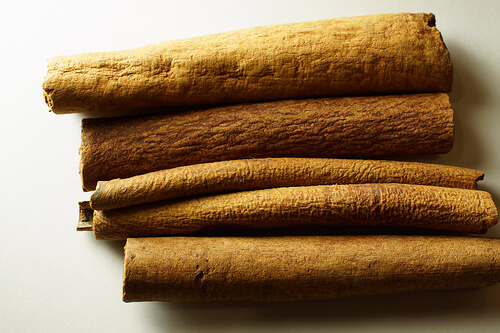
The use of this aromatic is very old, since the age of the Egyptians, according to the drawings on the pyramids.
It was imported from China 2,000 years before Christ and was used to embalm mummies. Later, in Greece and Rome, it was used to improve digestion.
However, studies show that it was, together with cardamom and pepper, the first species to be used in the Mediterranean region.
Moreover, it appears in the Bible several times and in the Orient, it is said that it began to be used in the year 2,700 B.C. Moreover, in India, it is also over 1,000 years old.
Its use in the West was related to the wealthy upper class, as it was very expensive.
In the Middle Ages, the Genoese and Venetians sold it through the Muslims.
In the 19th century, it began to be cultivated in other areas of the world, and today, it is commonly consumed with coffee or chocolate.
The Medicinal Uses of Cinnamon
We can say that this aromatic has many different uses due to its properties and benefits. Its internal use helps the digestive, respiratory, circulatory, and reproductive systems:
- Digestive system: due to its carminative, antiemetic, and antiulcer properties, it stimulates salivation and gastric juices. You can use it in cases of aerophagia (avoid excess of flatulence by drinking one tablespoon of cinnamon stick per liter of water), difficult digestion (consume a teaspoon of the powder before meals), acidity (sprinkle over foods), lack of appetite (drink a tea with one tablespoon of cinnamon stick per liter of water before meals), and vomiting (sprinkle a quarter teaspoon of powdered cinnamon over foods).
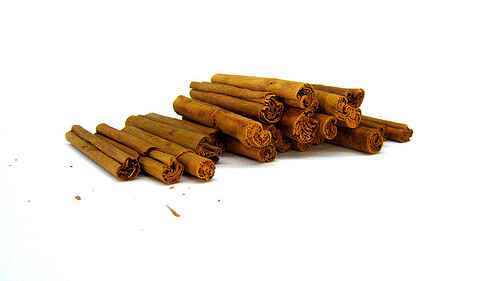
- Respiratory system: Due to its expectorant, antibacterial, and anti-inflammatory properties, you can use it in cases of bronchitis, colds, and cough (drink two drops of essence in a cup of warm water with a tablespoon of honey).
- Circulatory system: It has an antithrombotic property as well as helps prevent sclerosis, as it improves blood circulation. It works to treat problems in the toes and hands due to colds, and it is very effective in treating chilblains (drink several cups of infusions with a tablespoon of cinnamon stick per liter of water).
- Reproductive system: It is good for counteracting menstrual pains and to regulate the period (drink as a tea with a tablespoon of cinnamon stick), it is a great aphrodisiac, it stimulates the libido, and helps in cases of erectile dysfunction (drink a tea with half a tablespoon of cinnamon in a cup of water).
Read also: Coconut Oil for Improving Oral Health
External Uses of Cinnamon
The diverse preparations that can be bought or made at home serve to treat many illnesses that relate to fungi and bacteria. For example:
- Vaginal infections: It neutralizes Candida Albicans. Make a wash with the liquid that results from an infusion of a liter of water and a tablespoon of crumbled cinnamon stick.
- Fungus on the feet or nails: Soak your feet in an infusion of two tablespoons of cinnamon sticks in some liters of warm water.
- Respiratory infections: Gargle an infusion of cinnamon to treat tonsillitis, laryngitis, and pharyngitis.
- Mouth sores: Make a mouthwash with the tea of half a teaspoon of cinnamon per cup of water.
- Bad breath: The components of cinnamon block the development of bacteria from leftover food particles. Gargle with a mixture of several tablespoons of this aromatic in a liter of water.
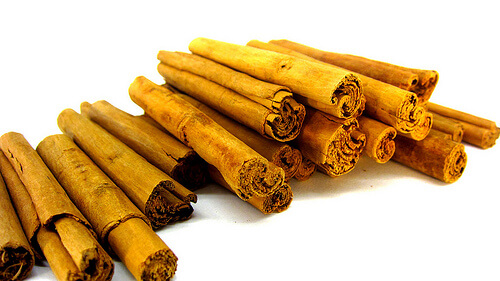
Other Benefits of Cinnamon
The tradition of Chinese medicine cinnamon’s properties are great for:
- Rheumatism;
- Arthritis;
- Osteoarthritis;
- Aches due to cold;
- Kidney problems;
- Blood circulation;
- Inflammatory disease;
- Diarrhea;
- Diabetes;
- Indigestion.
Counter-indications of Cinnamon
Finally, due to its hot and spicy properties, it greatly stimulates blood circulation. Therefore, it’s prohibited for those people with problems with clotting or a tendency to bleed. Its consumption should also be either avoided or carefully limited in pregnant women.
So, if in doubt, always consult a physician; although the medicinal uses of cinnamon are great, it can have undesired effects on the body.
Did you enjoy reading about the medicinal uses of cinnamon? Let us know!
Photography courtesy of Trophy Geek, Cinamon Vogue, Mc Kay Savage
All cited sources were thoroughly reviewed by our team to ensure their quality, reliability, currency, and validity. The bibliography of this article was considered reliable and of academic or scientific accuracy.
Gruenwald, J., Freder, J., & Armbruester, N. (2010). Cinnamon and health. Critical Reviews in Food Science and Nutrition. https://doi.org/10.1080/10408390902773052
This text is provided for informational purposes only and does not replace consultation with a professional. If in doubt, consult your specialist.

